Israel’s Benjamin Netanyahu promises payback to Iran for missile attack
Israeli PM Benjamin Netanyahu is preparing retaliatory strikes against Iran, warning it ‘will pay’ for a major missile attack on the Jewish state.

Israeli Prime Minister Benjamin Netanyahu is preparing retaliatory strikes against Iran, warning it “will pay” for a major missile attack on the Jewish state, as Joe Biden declares the US is “fully supportive” of its Middle East ally.
With the region on a knife-edge, Iran’s Revolutionary Guard Corps warned of “more crushing and ruinous” attacks if Israel responded, as the country’s President, Masoud Pezeshkian, declared its strikes represented “only a portion of our power”.
Iran fired nearly 200 ballistic missiles into Israel on Wednesday morning AEST, targeting intelligence facilities and military bases.
Most were intercepted by the country’s air defences and US warships stationed in the region.
Mr Netanyahu declared: “Iran made a big mistake tonight – and it will pay for it.
“The regime in Iran does not understand our determination to defend ourselves and to retaliate against our enemies.”
The missile barrage sent 10 million Israelis rushing to shelters. Damage was limited, while the only known casualty was a Palestinian man killed by falling debris in the West Bank city of Jericho.
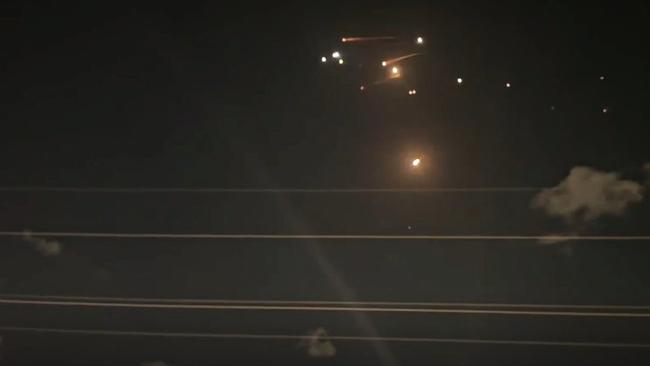
Israeli officials told the Axios news site that the country would launch “significant retaliation” within days and could target oil production facilities inside Iran.
The UN Security Council scheduled an emergency meeting for late on Wednesday night AEST to respond to the unfolding crisis amid fears it could escalate rapidly into a wider war.
Anthony Albanese said Israel had a right to defend itself but refused to endorse its threatened military response against Iran, as Peter Dutton accused the government of “weakness” and declared the Coalition would always stand with Israel.
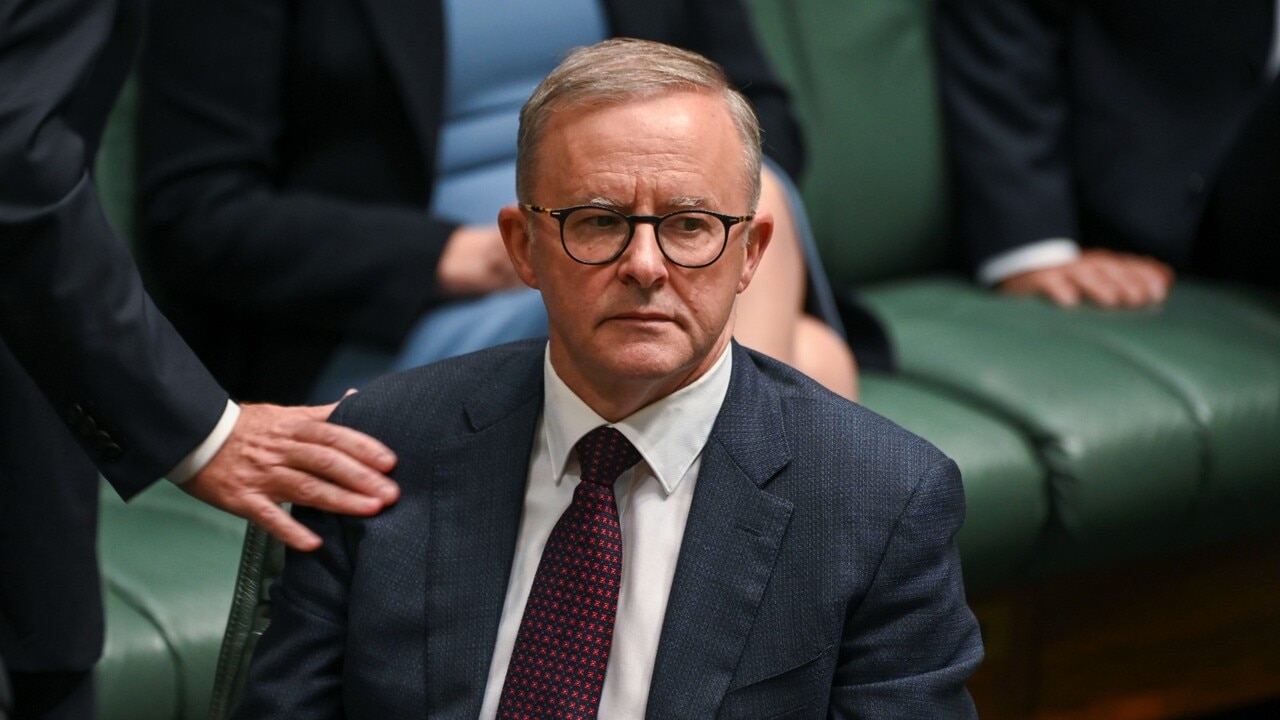
The Iranian attack came barely 24 hours after Israel began a “limited” ground invasion of Lebanon to paralyse the Iranian-backed Hezbollah terrorist group, which has fired more than 8000 rockets into Israel since Hamas’ October 7 attack last year.
Oil prices leapt higher on the tensions, with Brent crude futures rising by $US4 to $US74.88 a barrel since Israeli troops crossed into Lebanon. Analysts warned of further price jumps if Iranian oil production was disrupted.
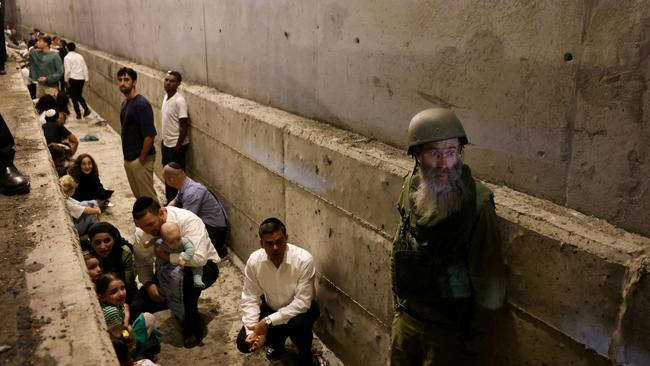
Two US navy destroyers in the region destroyed about a dozen of the Iranian missiles in a pre-prepared response to the attack.
Mr Biden said the co-operation was a testament to “intensive planning … to anticipate and defend against the brazen attack we expected”.
“Make no mistake, the United States is fully, fully, fully supportive of Israel,” Mr Biden added.
US Defence Secretary Lloyd Austin said that the US had “fulfilled our commitment to partner with Israel in its defence” against an “outrageous act of aggression”. “We will never hesitate to protect our forces and interests in the Middle East, and to support the defence of Israel and our partners in the region,” he said.
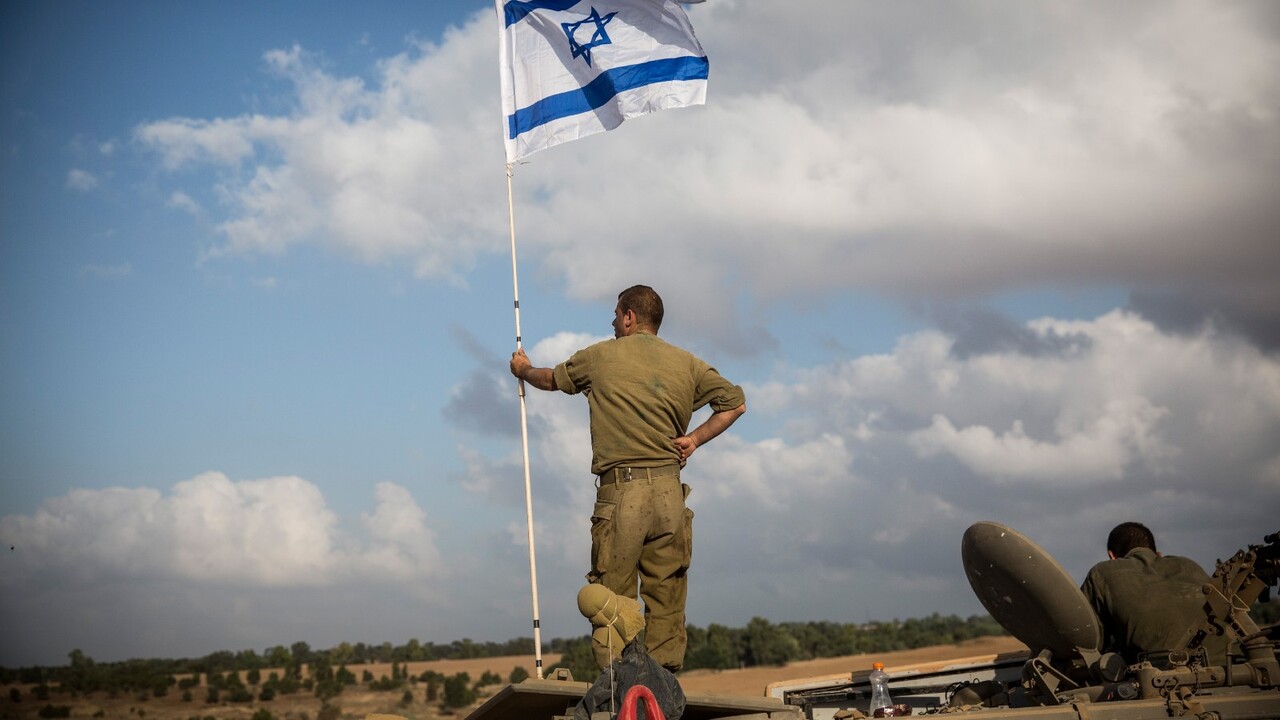
Iranians celebrated the missile barrage on the streets of Tehran amid similar scenes in Gaza and Beirut.
Iran’s military said the attack was a response to Israel’s assassinations of Hezbollah leader Hasan Nasrallah in Beirut last week, a top Iranian official who was with him at the time, and Hamas chief Ismail Haniyeh in Tehran in July. The country’s military chief Major General Mohammad Bagheri said Iran had targeted military infrastructure including Mossad headquarters, the Nevatim and Hatzor air bases, radar installations and Israeli tank formations. “We had the capability to attack the regime’s economic infrastructure, but we only targeted military bases,” he said.
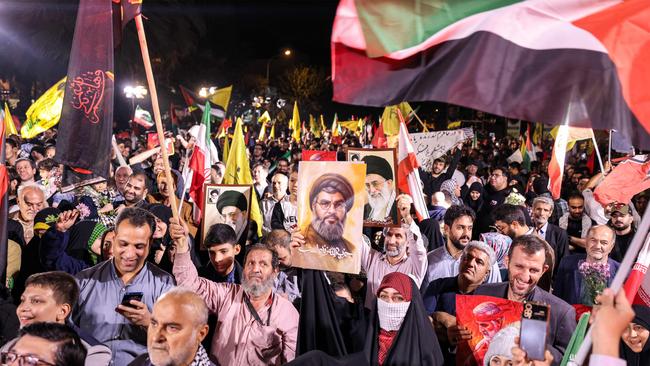
“If the Zionist regime is not controlled and takes action against Iran, we will target all of its infrastructure.”
Iranian Supreme Leader Ayatollah Ali Khamenei dialled up the warnings, declaring in a message in Hebrew that the blows against Israel would become “stronger and more painful”. “Victory comes from Allah and it is close,” he said in a post on X, with an image of a large underground weapons cache.
Earlier, two Palestinian terrorists from the West Bank killed seven people and wounded at least eight in a shooting and stabbing rampage in Jaffa, before they were “neutralised” by a security officer and armed civilians.
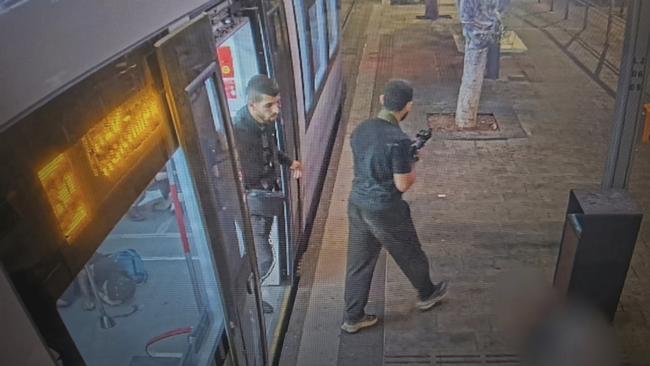
Meanwhile, Hezbollah said its fighters had killed Israeli troops and forced others to retreat in Lebanon, as Israel announced “targeted raids” in the country’s south, warned civilians to leave two dozen villages, and called up more reserve troops to bolster its invasion forces.
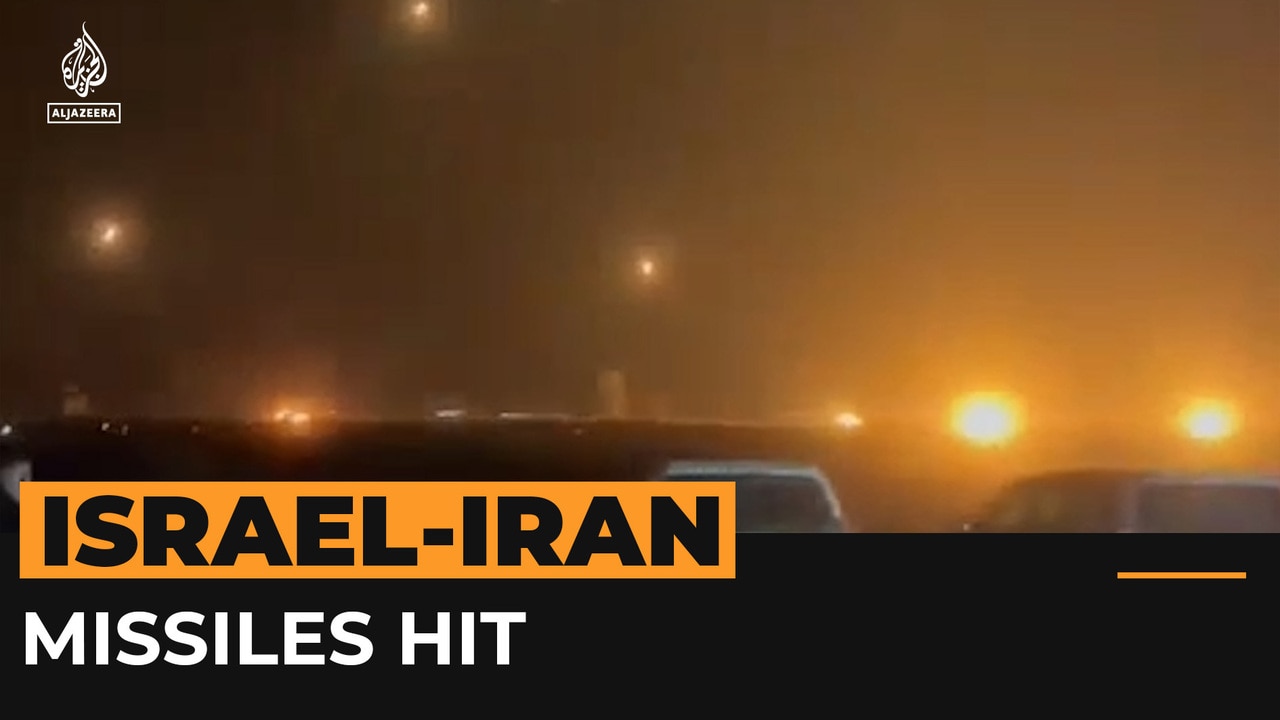
The IDF said about 100 rockets were launched from Lebanon into northern Israel on Wednesday morning local time, but there were no reports of injuries. Lebanese Prime Minister Najib Mikati said there could be as many as one million displaced people in the country, with authorities registering almost 240,000 crossings into Syria since September 23.
The IDF also carried out air strikes on Wednesday AEST on two former schools in Gaza it said were being used as Hamas command centres. The Gaza Health Ministry said at least 23 people had been killed in Israeli bombardments in recent days.
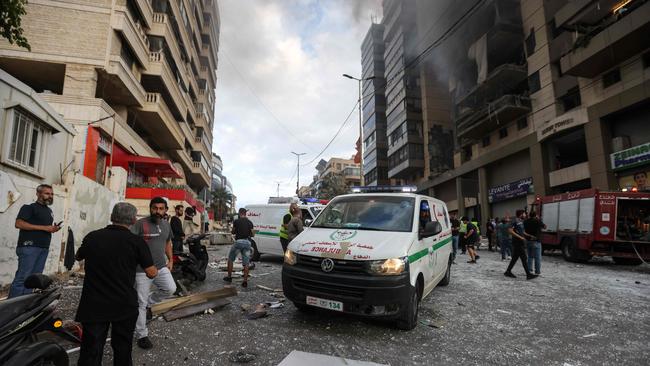
The latest Iranian attack follows a similar attack in April, when the regime fired hundreds of missiles and drones at Israel, most of which were intercepted with help from the US, Jordan, Britain and France. Israel’s response to that attack was restrained, striking near an air defence system near one of Iran’s nuclear facilities to signal their vulnerability.
UN chief Antonio Guterres led international calls to stem the “broadening conflict in the Middle East”, saying in a statement: “This must stop. We absolutely need a ceasefire.”
Iran has one of the region’s most powerful militaries, with thousands of ballistic and cruise missiles in its arsenal. Analysts said it appeared the regime fired Shahab-3 ballistic missiles, as Iranian media claimed a new Fattah-1 “hypersonic” missile was used in the attack.
Additional reporting: Agencies



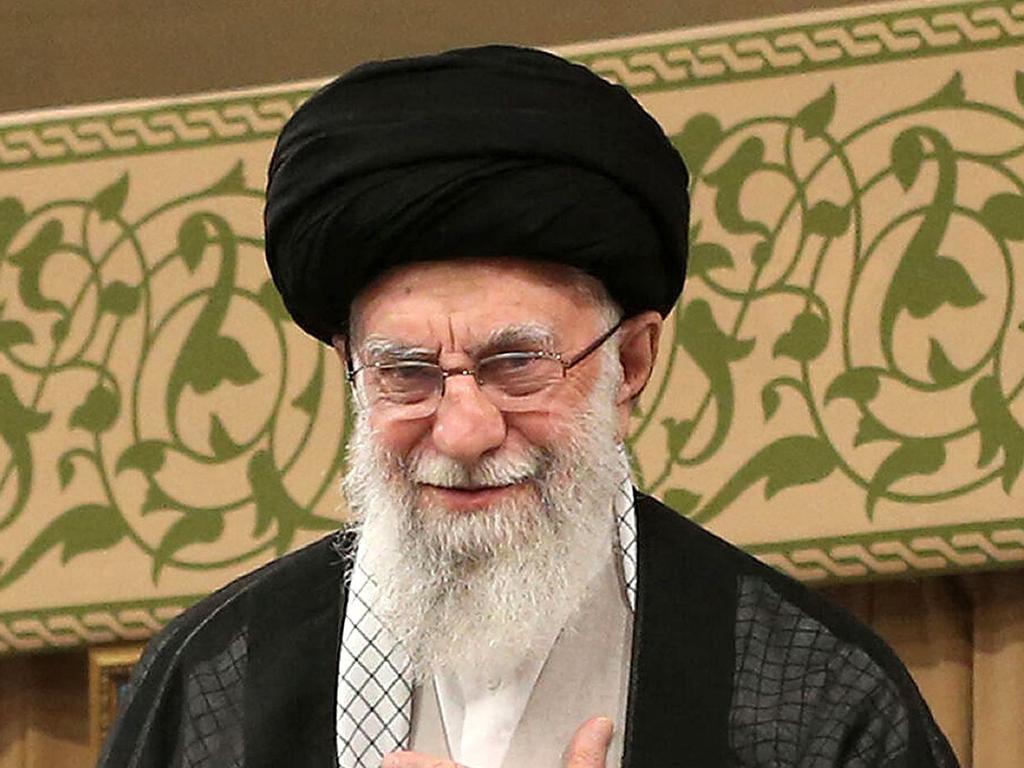

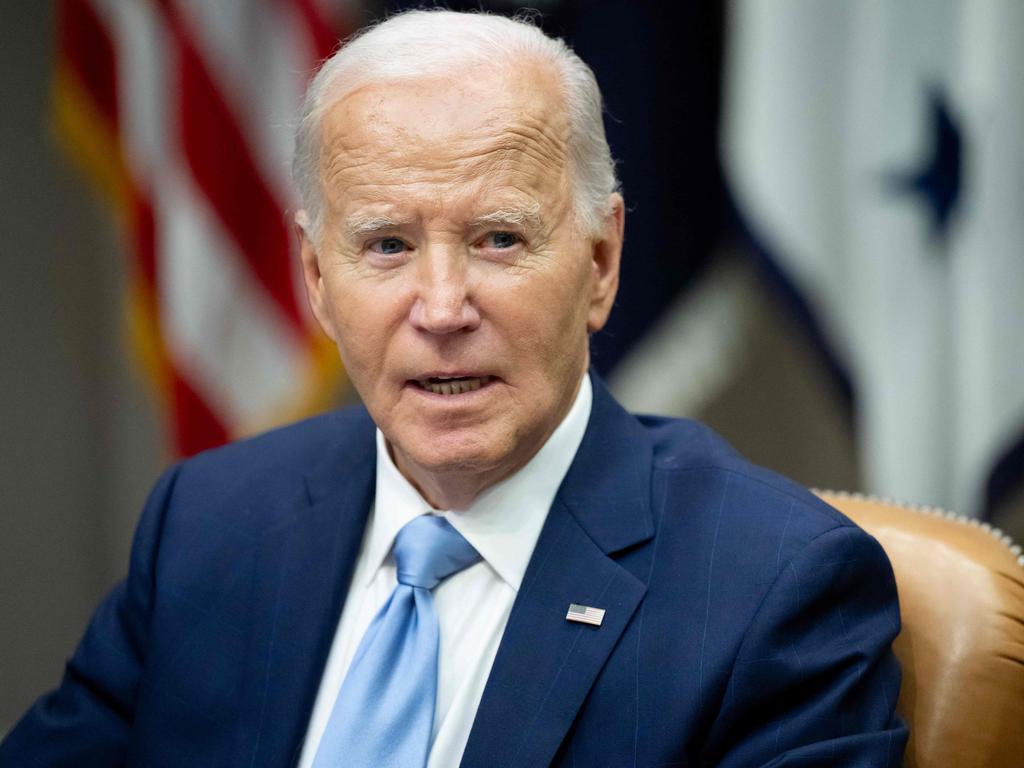


To join the conversation, please log in. Don't have an account? Register
Join the conversation, you are commenting as Logout